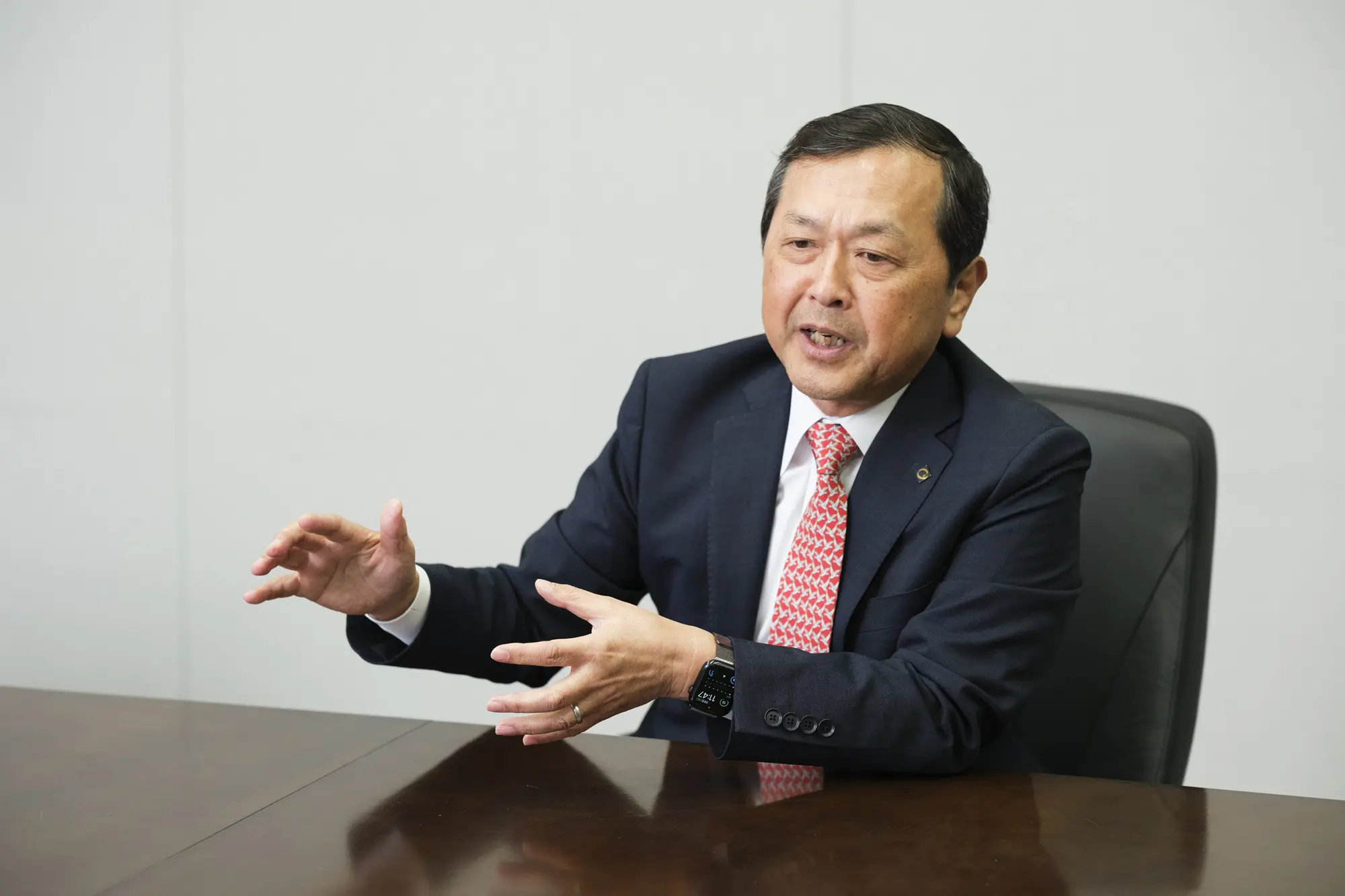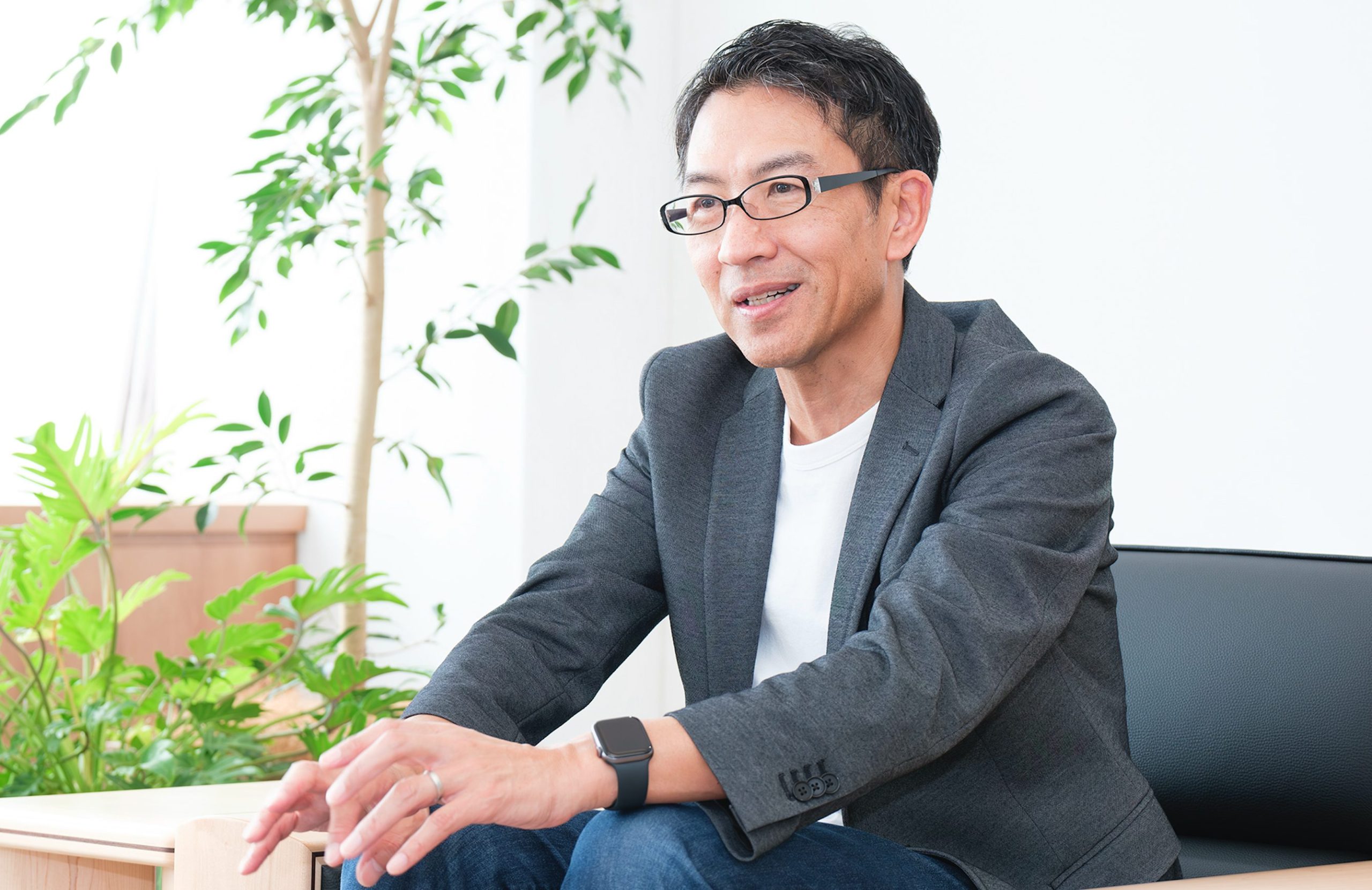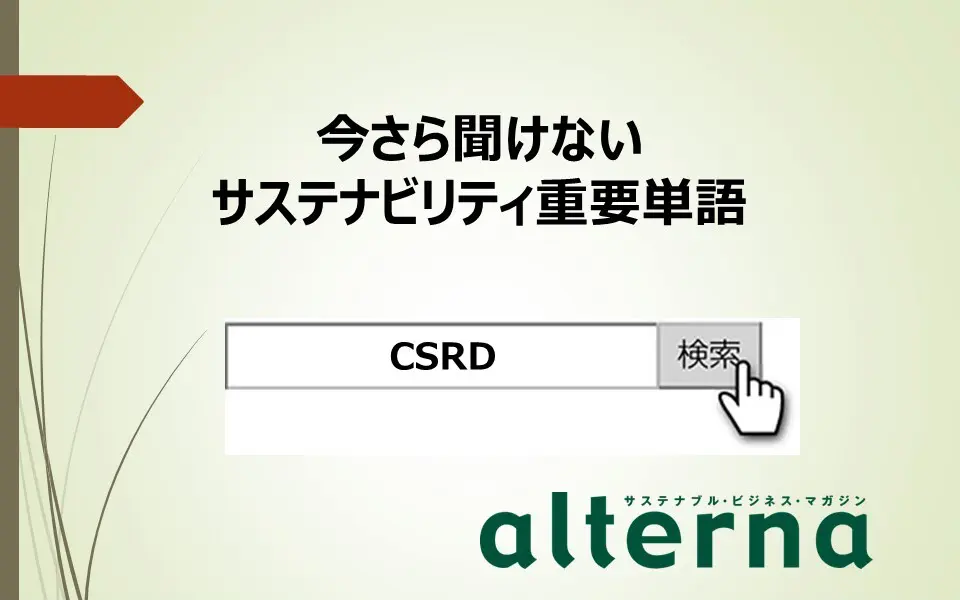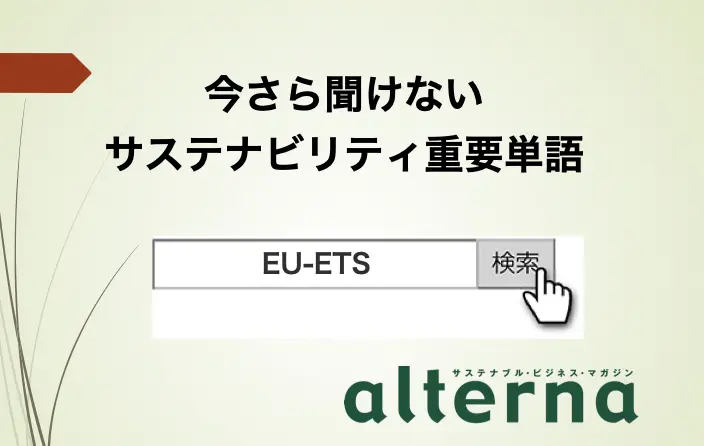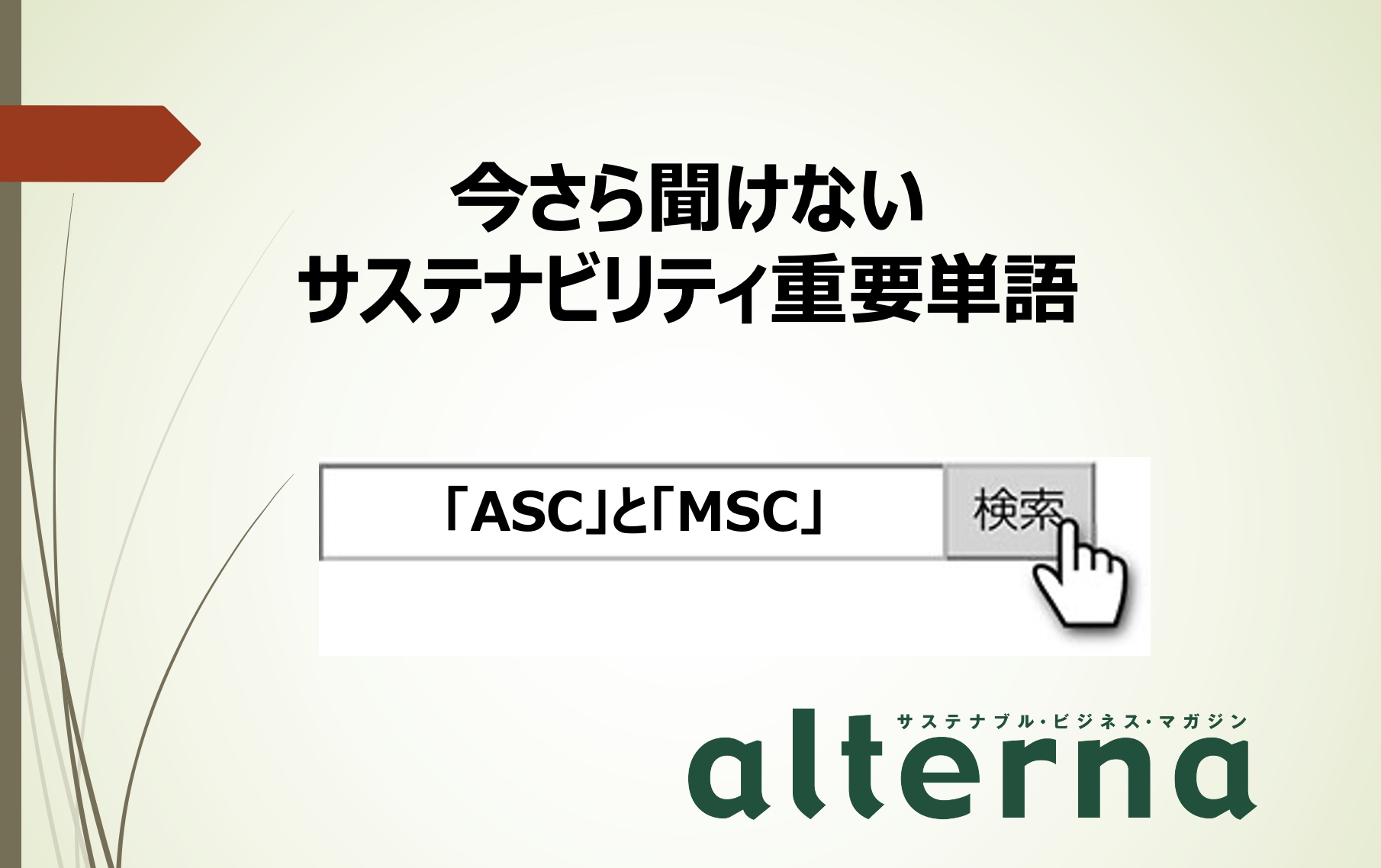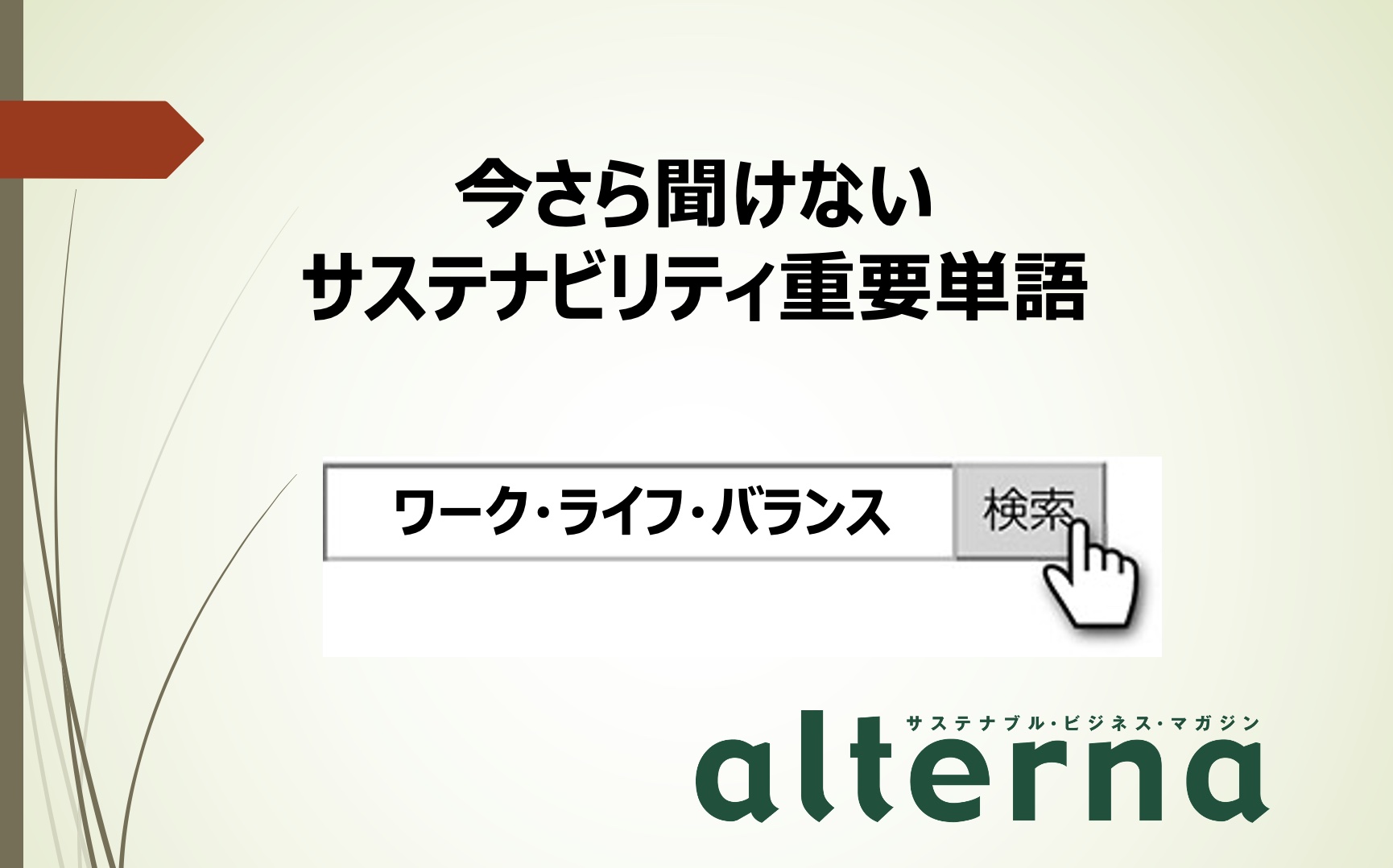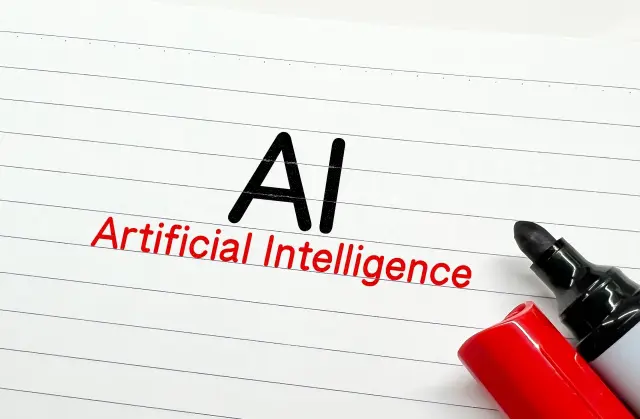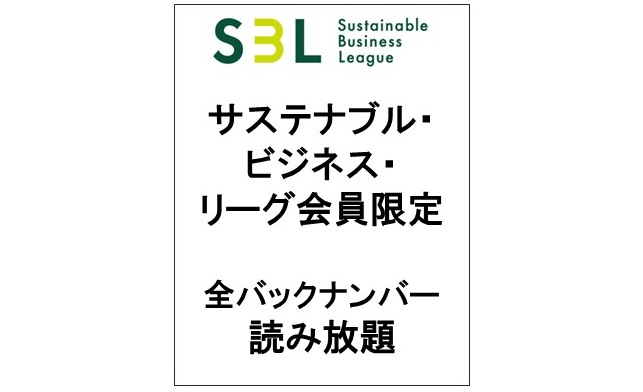■オルタナ式英単語:Social Issues and SDGs
皆さんこんにちは!
今月はLesson8 “Corporate Social Contributions and Donations「企業の社会貢献と寄付」を取り上げます。キーワードのひとつはフィランソロピー(Philanthropy)。昨今、資本主義とのかかわりで新たな可能性を秘めた概念として注目されており、耳に入る機会もこれからさらに増えることでしょう。それぞれの領域でこの概念がどのように発展しているか、発展していきそうか、自分事にあてはめて考えてみてはいかがでしょうか。
【語注】
dependence 依存
fragile もろい、脆弱な
affected area 被災地
tailwind 追い風
degradation 悪化
企業の社会貢献の変遷
Nearly 30 years have passed since the first year of philanthropy in 1990. As we move away from governmental dependence, the private sector is expected to play a greater and greater role in the public interest. Companies are encouraged to disclose, not to bury, their good actions. The concept has been changed from “Corporate Citizenship,” “Enlightened Self Interest” in the 1990s to CSR and CSV of today. Now they are increasingly required to view it in relation to their main business and think strategically.
【訳】
1990年のフィランソロピー元年からおよそ30年がたちました。行政依存から脱却するにつれ、民間セクターは公益においてますます大きな役割を果たすことが期待されています。企業は陰徳を積むのでなく開示するよう求められています。90年代の「企業市民」、「啓蒙された自己利益」からCSR/CSVへと、より本業と関連付けてとらえ、概略的に考えることが求められてきています。
「陰徳」は「人に知られないようにする善行」のこと。「陰徳を積む」はdo good secretlyと訳す方法もありますが、ここでは(開示との対比で)「隠す」ことに焦点をあて、bury を使いました。
Corporate Citizenshipは社会の一員としての企業の責任・義務をさします。
Enlightened Self InterestはTocquevilleによる概念で、多様な利害関係者の便益を高めていくことが、結果的に自己の財務的パフォーマンスに返ってくることを意味します。「見識ある自己利益」とも。「利他的利己主義」の考え方ですね。
ステークホルダーの参画を推進する企業の寄付動向
With the aging population and the declining birth-rate of Japan, we could not rely on taxpayers for funds for the public interest. In this situation, more than 50,000 NPOs in the private sector serve the public interest, though their financial base is often fragile. It is essential to increase individual donations for the creation of a healthy society. Companies have also begun to increase their stakeholder participation programs. The Great East Japan Earthquake has given momentum to many individual donations.
【訳】
少子高齢化が進み、公益のための資金を税金に頼ることはできなくなりました。そうしたなか、民間として公益を担うNPOは5万団体を超えるものの、その財政基盤は脆弱です。個人寄付の拡充は、健全な社会創出のために不可欠となりました。企業においても、ステークホルダー参画型の寄付プログラムも増え始めています。東日本大震災を契機に、個人寄付の機運が盛り上がりました。
give momentum toは「~に弾みをつける」です。
fragile は「割れもの注意」のステッカーでお馴染みのように、「壊れやすい」という意味あいです。
社会課題の解決に資する寄付の意義
Today, more and more companies encourage their employees to join the volunteer. Many companies sent their employees to the affected areas to provide support for the Great East Japan Earthquake. Now they intend to allow them to participate in volunteer activities on a daily basis. In fact, some companies have incorporated volunteerism into their new employee training programs. This is because it is thought to have the following benefits: (1) learning about the needs of society and enhancing innovative thinking, (2) cultivating human sensitivity, (3) enhancing teamwork skills, and (4) gaining the empathy of young people.
【訳】
今日、ますます多くの企業が社員のボランティア参加を推進しています。東日本大震災支援の際には被災地を支援すべく従業員を派遣する企業が多かったのですが、それを日常レベルで進めようという狙いです。実際、新入社員研修としてボランティアをプログラムに取り入れている企業もあります。それは、①社会のニーズを知り、イノベーティブな発想力を高める、②人間としての感性を磨く ③チームワーク力を高める、 ④若者の共感を得るなどの効果があると考えられているからです。
ここに書かれているように、ボランティア参加は企業にとって社会貢献であるとともに、人材育成、気づきの場として評価されるようになりました。
benefit は「利益、恩恵」。人や社会の幸福につながる「便益」をさします。「給付金」という意味でも使われますね。動詞の意味もありますので、ぜひ辞書でご確認を。
Companies will need to clarify their perspective on how to solve social issues in the core business, obtain the understanding of both internal and external stakeholders in their social contribution activities, and increase the value of their corporate existence with an eye to stakeholder participation.
【訳】
企業は本業において社会課題解決の観点をより明確にし、また社会貢献活動も社内外のステークホルダーの理解を得、ステークホルダーの参画も視野に入れて企業の存在価値を高めていかなければなりません。
一般に、internal stakeholderは経営者、役員会、従業員等、external stakeholderは顧客、サプライヤー、政府、社会等をさします。
Shareholders are increasingly interested in ESG investment, and this provides a tailwind for companies as they move toward the SDGs. We have entered an era in which we should consider how to make strategic contributions to society in line with management policies that further deepen our partnerships with our shareholders and other stakeholders. In addition, social issues are becoming more and more serious and complex, such as the declining birth-rate, aging population, and global environmental degradation.
【訳】
株主はESG投資に関心を深めており、企業がSDGsに取り組む追い風になっています。株主をはじめ、ステークホルダーとのパートナーシップをよりいっそう深める形で、経営方針に則った、戦略的な社会貢献のありかたを考える時代に入ってきました。しかも、少子高齢化、世界的な規模での環境劣化など、社会課題はますます深刻化、複雑化しています。
ESG investmentは従来の財務情報だけでなく、環境(Environment)・社会(Social)・ガバナンス(Governance)要素も考慮した投資のこと。特に、年金基金など大きな資産を超長期で運用する機関投資家を中心に、企業経営のサステナビリティを評価するという概念が普及し、気候変動などを念頭においた長期的なリスクマネジメントや、企業の新たな収益創出の機会(オポチュニティ)を評価するベンチマークとして、国連持続可能な開発目標(SDGs)と合わせて注目されています。(ESG投資(METI/経済産業省)
in line with は「~と一致して」。
However, there is a limit to what one company can do alone. Collective philanthropy, which involves other companies, NPOs, governments, education, medical and other professional groups, and citizens, is needed. We have to be prepared to move in the direction that companies will become the core of a collective philanthropy system and that fair competition will lead to the creation of a better society.
【訳】
しかしながら、一企業だけでなしえることには限界があります。他企業、NPO,行政、教育、医療などの専門集団、および市民を巻き込むコレクティブ・フィランソロピーが不可欠です。その中核に企業があり、そのうえでの公正な競争がよりよい社会づくりにつながるという方向へ進む覚悟ある取り組みが求められています。
Collective philanthropyは、単独でなく他組織・個人と専門知識を共有し、協働し、リソースを最大限に活用して社会においてフィランソロピーの理念を実現していこうとする考え方です。
フィランソロピーの延長線上にはPhilanthrocapitalism(博愛資本主義)という概念もあります。日本や世界が抱える多くの社会的な問題の解決には官民連携が不可欠であることから、公共の立場からも、民間の立場としても、博愛資本主義の重要性は今後高まっていくと考えられます。
今月はここまでです。また来月お目にかかりましょう。



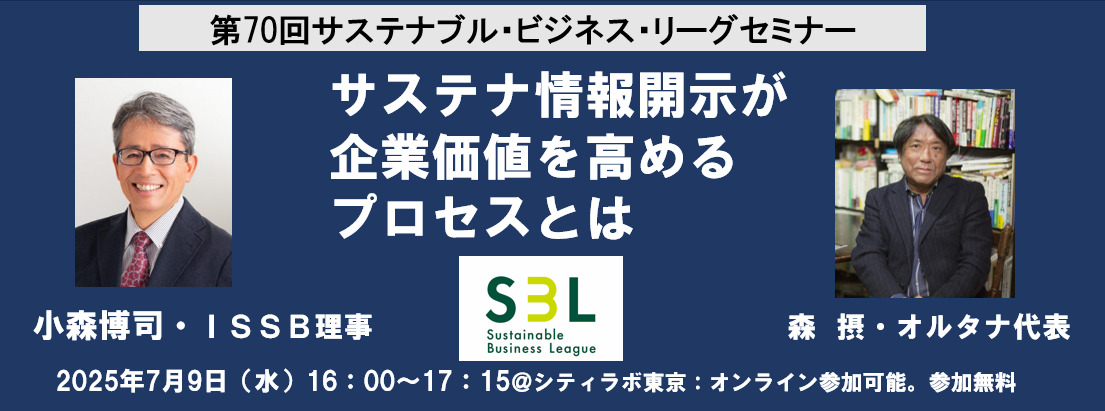


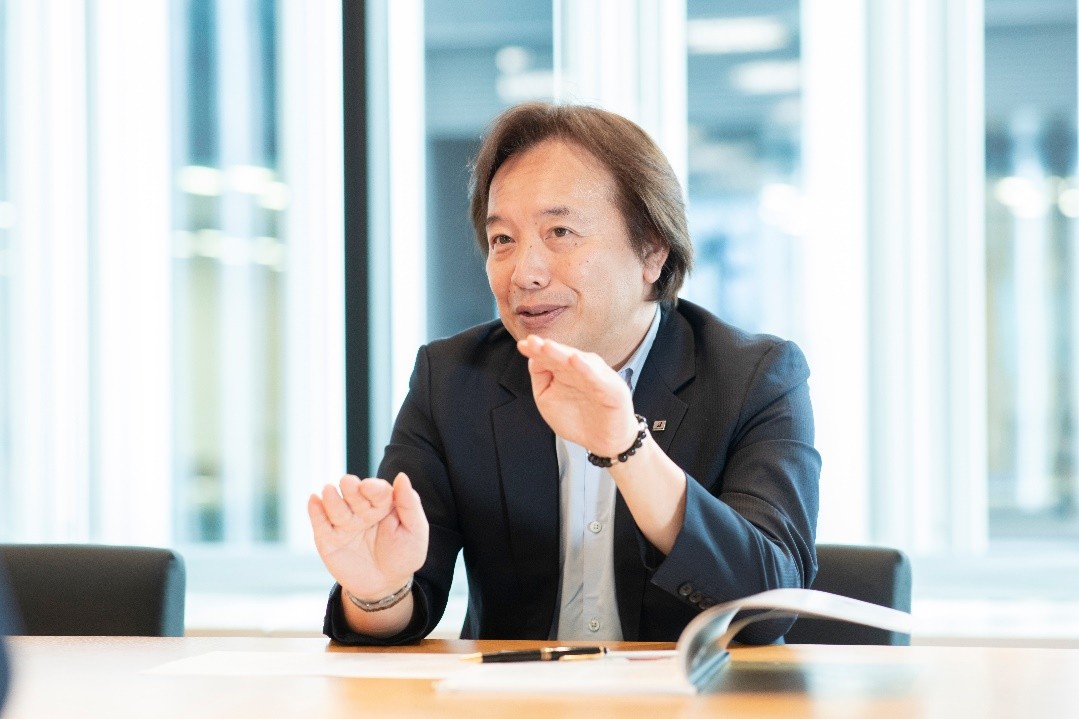
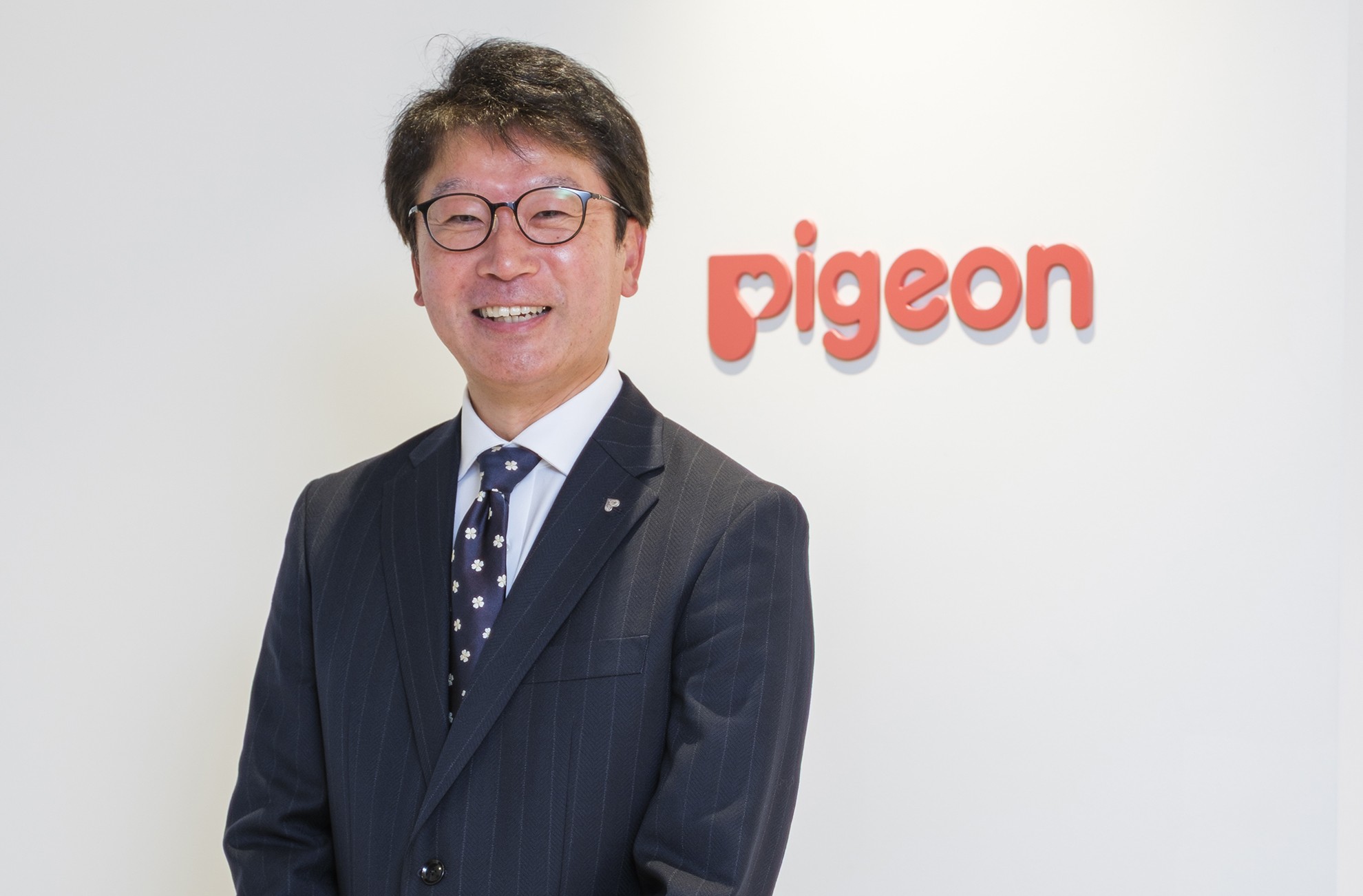
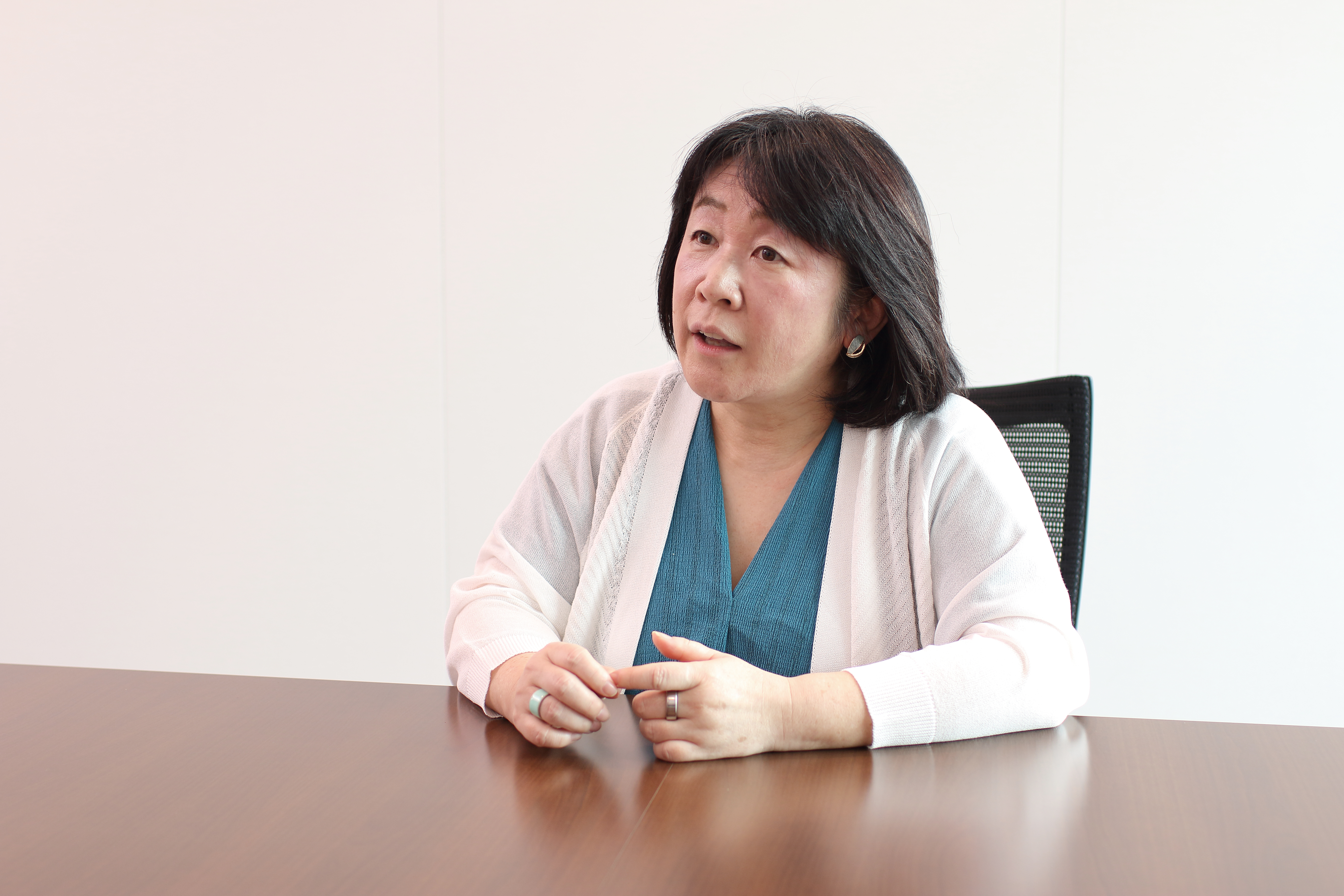
-1-scaled.jpg)
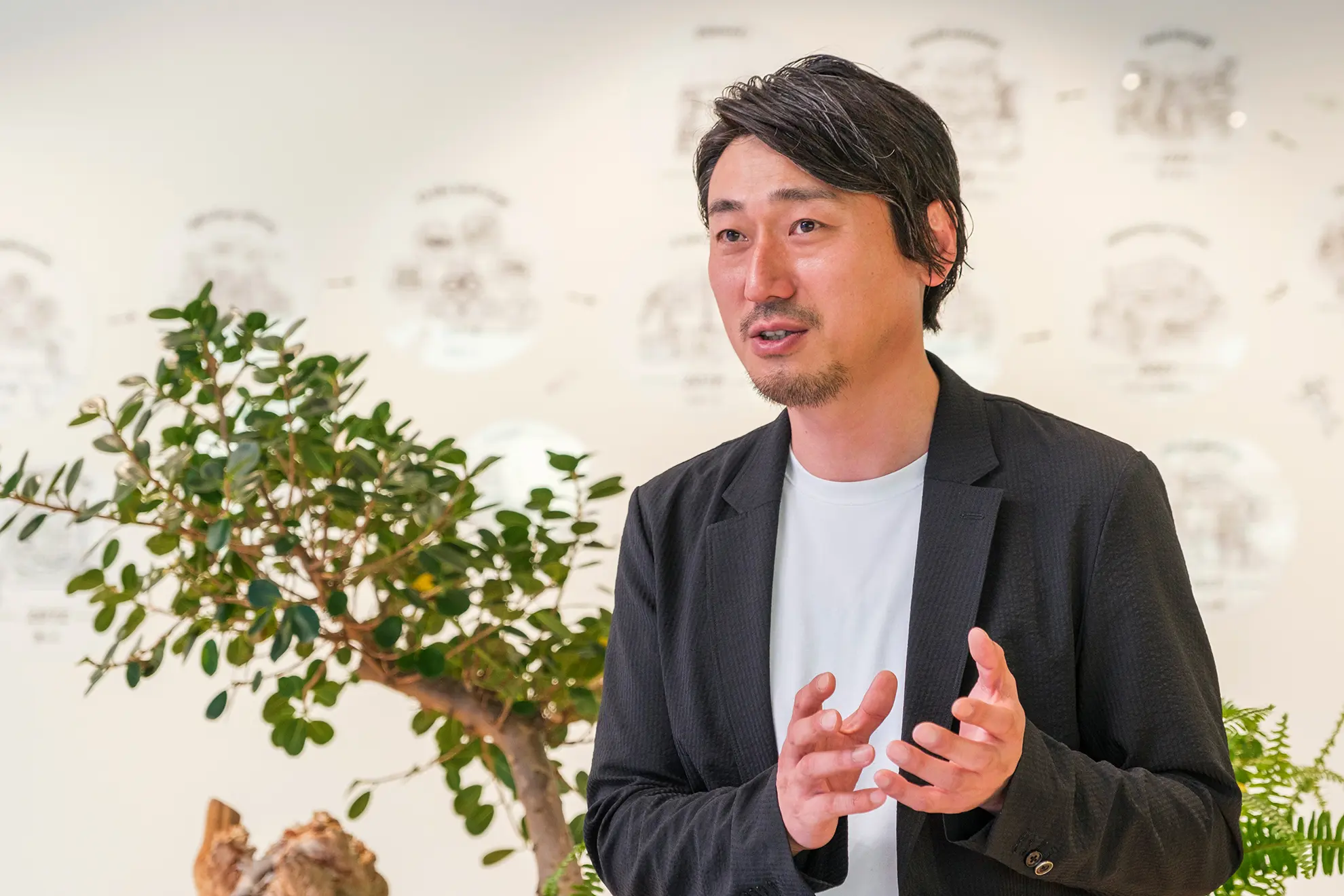
-scaled.jpg)
